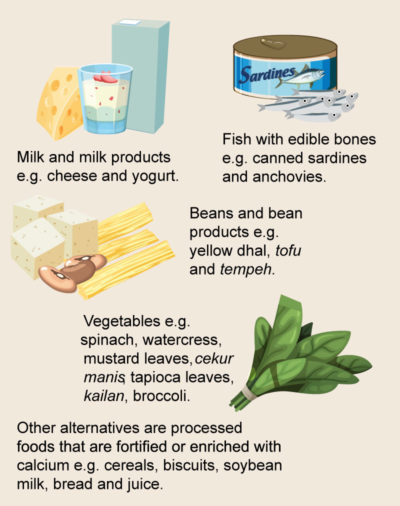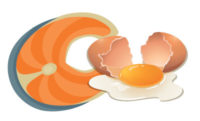A baby is born with about 300 bones at birth. Some of your child’s bones are made up of cartilage (smooth elastic tissue with a rubber-like texture) while others are partly made up of the same material. As they grow, the bones fuse together and the cartilage hardens, ultimately leaving 206 bones that we, as adults have.
Caring for your child’s bones early on is important because by the time they reach their 20’s, bone growth stops (peak bone mass). Moreover, our bones perform many important functions such as:
- Protecting important and delicate organs (e.g. the brain is protected by the skull and heart is protected by the ribcage).
- Along with skeletal muscles, tendons, ligaments and joints, the bones also provide movement and mostly act as levers.
- Red bone marrow helps to produce both red and white blood cells.
- Store minerals such as calcium and phosphorus.
- Yellow bone marrow of long bones helps store fat.
- Some bones help produce and store growth factors.
- Minuscule bones in the ear allow us to hear.
- Release and absorb alkaline salts to keep body pH balanced.
Many factors can influence the health of your child’s bones including inadequate intake of calcium, vitamin D and lack of weight-bearing exercise to strengthen bones. It is therefore, important that optimise your child’s bone mass from young to prevent osteoporosis and brittle bones. Brittle bones are prone to fractures later in life, and you prevent this by providing him with proper nutrition.
Eat a Healthy Diet
A healthy balanced diet will provide all the necessary nutrients, including vitamins and minerals for building strong bones. But two nutrients of particular significance are calcium and vitamin D.
Calcium
Calcium is a mineral required to build bones and keep them healthy. Approximately 99% of the body’s calcium is found in the bones and it is required for normal bone growth and development. In addition to keeping bones healthy, calcium also helps out with blood clotting, transmission of neurons and muscle contraction. We need to include a variety of foods that are rich in calcium in our daily diet. Food that are good sources of calcium include:
Vitamin D
Vitamin D also plays an important role in building strong bones. Vitamin D is essential for calcium absorption and utilisation, mineral metabolism for bone development and health and other functions. There are two forms of vitamin D. Vitamin D2 is mostly man-made and added to foods. Vitamin D3 is synthesised by humans in the skin when it is exposed to sunlight. Vitamin D3 can also be obtained from some animal-based foods.
Foods that provide vitamin D include fatty fish (e.g. salmon, tuna, sardine, mackerel), cod liver oil and egg yolk. It can also be found in foods fortified with vitamin D such as milk and cereals. However, vitamin D is present in a small number of foods and usually in small amounts. Hence, direct sunlight exposure to the skin is a good way to achieve an optimum level of vitamin D. Encourage your child to spend some time outdoor exercising or playing games to get sun exposure, so that their body can make some Vitamin D.
While calcium and vitamin D are known to be vital for bone health, several additional nutrients such as vitamins A, B, C, E, folate and minerals such as copper, zinc, selenium, iron and magnesium, also play a part in building and maintaining strong bones. To ensure your child receives all the nutrients he needs for optimal bone growth and health, he should practice a varied, well-balanced diet as recommended in the Malaysian Food Pyramid.
Milk – a nutritious food!
Milk and milk products are good sources of calcium and vitamin D for bones. They also contain other essential nutrients like protein, which is important for growth. The Malaysian Food Pyramid recommends 2 -3 servings of milk and milk products everyday. That’s equivalent to 3 glasses of milk. Or consume 1 glass of milk, 1 cup of yoghurt and 1 slice of cheese a day.
Be Active!
Besides eating well, children should also be encouraged to be more physically active. Examples of bone-strengthening exercises include jogging, running, walking, hiking, climbing stairs, dancing, gymnastics, and sports that involve running or jumping (e.g. football, basketball and racquet sports). Reduce screen time (e.g. using smartphone, tablet, TV or computer) and being sedentary.
The most important thing to do is to start your child early with these healthy lifestyle habits. Living healthy does not only benefit your child’s bones, it also helps to strengthen and maintain overall health, ensuring your child is able to face the challenges of the day and reach his full potential.
An educational collaboration with Nutrition Society of Malaysia.











Comments